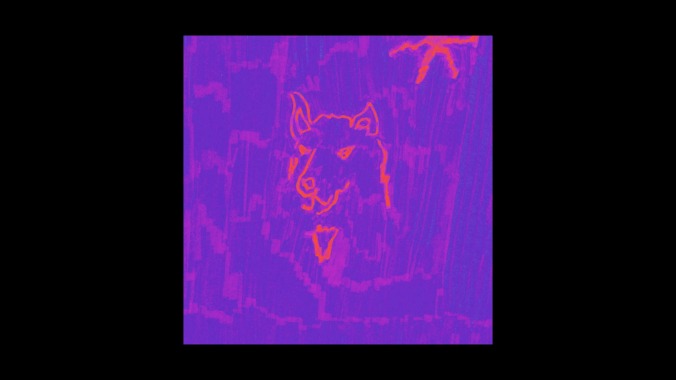Dehd Explore the Colors of Love and Poetry
The Chicago trio’s fifth and latest album doesn’t find them breaking new ground; rather, it’s an enchanting, familiar exercise in perfecting the formula that’s made them so beloved in the first place.

You can assign any sort of “indie rock” classification to Dehd and you’d probably be right. Jason Balla’s guitar rides the reverberated wave of surf rock; bassist and vocalist Emily Kempf applies both a rockabilly and post-punk affectation; drummer Eric McGrady, using just a floor tom, snare, drum machine and tambourine, harnesses the raw zest of early garage rock. They’re shoegaze! But less obstructed. They’re Jesus and the Mary Chain! Minus all the gain and distortion. Yes, yes, yes and, also, yes.
Born out of the Chicago DIY scene, Dehd’s sophomore LP, Water, had the lo-fi, fuzzed coyness of Beat Happenings, while 2019’s mainstream breakout Flower of Devotion found the trio a bit more polished but still clinging to the same controlled variables. 2022’s Blue Skies, their first with Fat Possum, applied an almost identical treatment, highlighted by more MIDI drums and synth.
Poetry is scarcely different, save for some new (but seamlessly embedded) synthetic favors and lyrical risks, both good and bad. It’s easy to avoid the overwrought with such a small operation, especially when you’ve figured out how to make genuine hooky, pop music that doesn’t make you roll your eyes. Plus—it’s hard to change your signature. You can maybe curl the l’s a little and exaggerate your g’s, but your handwriting is still a product of your palm’s grip—consistent, distinct.
And what makes Dehd truly distinct are their vocals. Kempf and Balla belt at different rates, as if operating a vocal tandem bike. Kempf’s warble is full and guttural; she growls a battle cry but can still shoot straight with an (elegant) rasp. Balla is more lackadaisical; he sings matter-of-fact, pulling when Kempf is pushing, or yodeling, or howling. Denying their signature and trying for something, say, “fancier” would just result in scribbled nonsense. So, they just give you what you want: more Dehd songs. Of which, there are two types: one that stampedes, another that treds. Born from a Kerouacian full-band crusade, Poetry is fittingly 50/50. You get the on the road giddiness as they speed cross country and the pensive nighttime reflections when they’re on cruise control.
Their expedition kicks off in high spirits as they charge onto the road with a full tank of gas. “Everyone I know is breaking hearts tonight / Everyone I know is bleeding, but I know we’ll be alright,” sing Balla and Kempf on opener “Dog Days.” Per tradition, Balla’s guitar is soaked in reverb as he slams down on his strings while McGrady taps his snare. They list what the titular days entail: a bad boy in a fast car, a glass half full that you knocked over, Gucci sunglasses. Eventually they just start howling—but it works, and I’m sure it feels good. Here, and everywhere, really, Dehd carefully intermix their earnesty with their oddity. It’s always done with a fine precision: They don’t pull things out of a hat; they’re careful and deliberate, especially on Poetry, perhaps thanks to unprecedented production aid from fellow Chicagoan, Ziyad Asrar (Whitney).
-

-

-

-

-

-

-

-

-

-

-

-

-

-

-

-

-

-

-

-

-

-

-

-

-

-

-

-

-

-

-

-

-

-

-

-

-

-

-

-








































